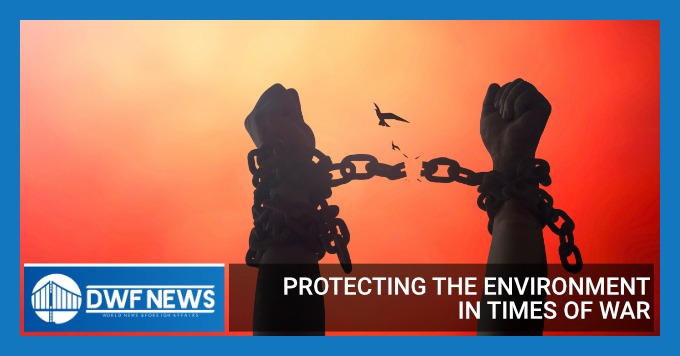Written By Peter Gleick
Founder | Pacific Institute
September 25, 2019
EDITOR’S NOTES:
To CUNCR Youth Climate Ambassadors:
I believe that climate change will require transforming the current geopolitical war system to a global peace system. Nations at war will not worry about the environment. New international laws to deal with climate change represent good intentions, but there is no viable means for enforcement. We must replace, or fix, the UN Charter as a key part of the movement to deal adequately with both war and climate change. That is why DWF’s campaign for UN Charter review (“UPHOLDING THE SAN FRANCISCO PROMISE”) is vital. To successfully deal with climate change, we must also end war. To end war, we must change the UN Charter into a democratic world federation (world union). The Earth Constitution can serve as a model for the UN General Assembly as it is a “green constitution” but also designed to end perpetual war.
Article originally published by Bulletin of Atomic Scientists
This story is part of Covering Climate Now, a global collaboration of more than 300 news outlets to strengthen coverage of the climate story.
War is a miserable thing. It kills and maims soldiers and civilians. It destroys infrastructure, cultures, and communities. It worsens poverty and development challenges. And it damages and cripples vital ecological and environmental resources.
Over the past 150 years, international law and principles related to war and armed conflict have evolved to try to limit some of the worst evils of violence by protecting civilians, medical and community infrastructure, and to some degree, the environment. But these protections are inadequate: Current international constraints are too weak, inadequately enforced, or both.
Fresh water and water systems are a disturbing example. The data shows an increasing trend of water-related conflicts and violence against natural or built water systems, where water is a trigger, weapon, or casualty of conflict. But we must also confront a world where worsening environmental conditions, including human-caused climate change, also contribute to the risk of population displacements, tensions, armed conflict, and war.
It is time for renegotiating and strengthening the international law protecting resources and the environment—a green Geneva Convention to protect resources, ecosystems (including the climate), and critical civilian water and energy infrastructure. We can start by building on the International Law Commission’s new draft environmental principles that were recently provisionally adopted at the United Nations, and adding a set of principles like those proposed for the protection of water infrastructure by the Geneva Water Hub of the University of Geneva.
What is World Federalism?
World Federal Government (WFG)
Original Publisher
PassBluePeter Gleick is a member of the US National Academy of Sciences and a hydroclimatologist. He received a MacArthur “genius” fellowship for his work on the consequences of climate change for water resources, and the risks of conflicts over water. He has pioneered and advanced the concepts of the “soft path for water” and “peak water,” and founded the Pacific Institute.
Related Articles
LIST of Articles DWF NEWS 5/28/25
Children, Civilians Burned Alive as Israeli Warplanes Target School, Home in Gaza Palestine Chronicle staff 'Can't Remain Silent' on Jewish Atrocities: Malaysian Foreign Minister Says at ASEAN Foreign Ministers' Meeting Aamir Latif Anadolu Agency ...
LIST of Articles for DWF NEWS 5/14/25
Should "Israel" Be Declared A Terrorist Entity? Kevin Barrett Israel Is Spiraling Ori Goldberg The Nation 'Our Position on Palestine Is Not Fringe' Janine Jackson FAIR Latecomers starting to join PEOPLE OF CONSCIENCE Multiple Western Press Outlets Have...
List of Articles for DWF NEWS 4/30/25
PEOPLE OF CONSCIENCE absent among WASP & Zionist elites Imperial Cowardice: Gaza & the Moral Collapse of the American Elite Mohamed El Mokhtar The Palestine Chronicle Where is the Arab Street? Asad Abukhalil Consortium News Gaza exposes the rot of...
Solving Global Problems
We can work together to make the world better

